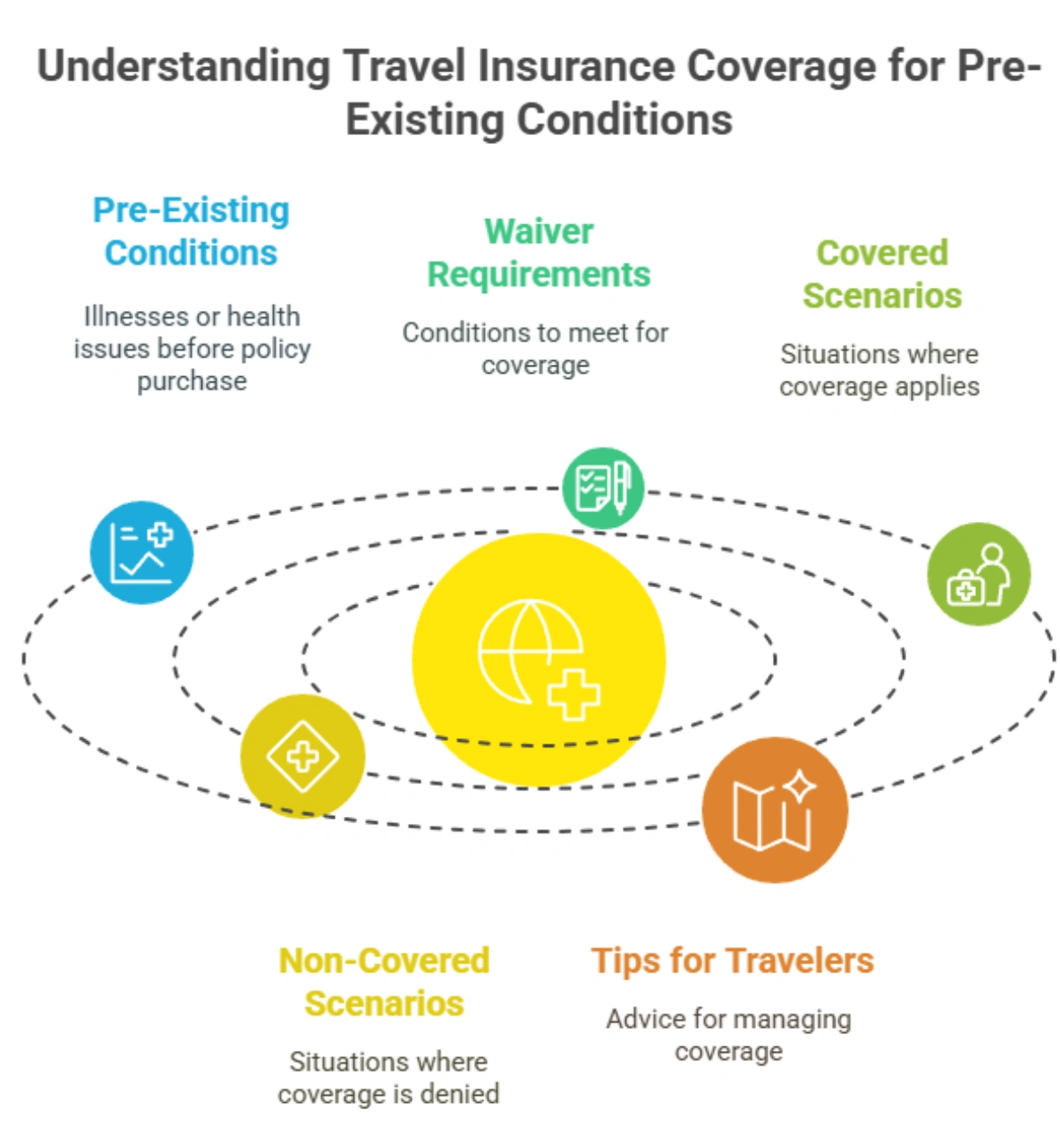As seniors age, health insurance becomes crucial to their financial and medical well-being. In the USA, there are several health insurance options specifically designed for seniors aged 45 and above. Whether you’re looking for Medicare, private insurance, or supplemental coverage, this guide will help you understand the best choices.
If you’re an American senior or someone helping a loved one navigate the golden years, you’ve probably noticed one thing—healthcare isn’t cheap. As we age, doctor visits, prescriptions, and unexpected medical needs creep up more often. That’s where health insurance for seniors comes in, a lifeline that keeps you covered without breaking the bank.
Why Health Insurance for Seniors Matters More Than Ever
Seniors are more defenseless to chronic diseases, clinic visits, and prescription sedation needs. Without appropriate coverage, therapeutic costs can rapidly end up overpowering. Health insurance guarantees financial security, quality care, and peace of intellect.
Maturing could be a benefit, but it comes with its challenges. Your body doesn’t bounce back like it used to, and restorative bills can heap up quickly. A trip to the clinic or an unused medicine can deplete your investment funds if you’re ill-equipped. That’s why having a solid aging health arrangement isn’t fair smart—it’s basic.
Within the USA, seniors over 65 depend intensely on insurance to oversee costs; indeed those resigning early require a retiree medical policy to bridge the hole. Without it, you’re betting together with your accounts and your health.
Think about it: the average American senior spends thousands out-of-pocket each year on healthcare. A good golden age coverage plan cuts that burden down to size. It’s not just about money—it’s about peace of mind. You deserve to enjoy retirement, not stress over every doctor’s visit. So, what’s out there for you? Let’s explore the top options for health insurance for seniors and see how they stack up.
Medicare: The Backbone of Senior Citizen Insurance
If you’re 65 or older, Medicare is likely your starting point. This government program is the gold standard for senior citizen insurance in the USA, covering millions of people like you. It has several parts, so let’s break them down quickly and simply.
First up, is Medicare Part A. This clinic remains gifted in nursing and a few domestic health care. If you’ve worked and paid charges for at slightest 10 a long time, it’s as a rule free.
Another, Medicare Part B covers specialist visits, outpatient care, and preventive stuff like screenings. You’ll pay a month-to-month premium—around $174 in 2025—but it’s worth it for the nuts and bolts. Together, Parts A and B make up “Original Medicare,” a strongly developed health plan for most seniors.
Then there’s Medicare Part D, which tackles prescription drugs. You pick a plan from private insurers, and costs vary based on your meds.
Finally, Medicare Advantage (Part C) bundles everything—hospital, doctor visits, drugs, even extras like dental or vision—into one plan run by private companies. It’s a popular choice for those wanting an all-in-one elder protection plan.
Boosting Medicare with Medigap: Your Elder Protection Plan
Original Medicare is great, but it leaves gaps. You’re still on the hook for copays, deductibles, and coinsurance. Enter Medigap, a private lifetime medical policy that fills those holes. Sold by insurance companies, Medigap plans (labeled A through N) help cover what Medicare misses, making it a killer add-on for health insurance for seniors.
Here’s the deal: say you’ve got a $1,500 hospital bill after Medicare pays its share. With a plan like Medigap Plan G, you might only pay the Part B deductible (about $240 in 2025), and the rest is covered. That’s a game-changer for your wallet. Plans vary—some cover foreign travel emergencies, others focus on hospital costs—but they all aim to give you old-age coverage that’s worry-free.
The catch? You pay a monthly premium, which can range from $50 to $300 depending on your state, age, and plan. Shop around, though—AARP/UnitedHealthcare and Mutual of Omaha often get high marks for value. If you want a senior care insurance boost without breaking the bank, Medigap’s a smart pick.
Medicare Advantage: The All-in-One Aging Health Plan
Not into piecing together coverage? Medicare Advantage might be your vibe. This golden age coverage option rolls Parts A, B, and usually D into one tidy package, often with perks like gym memberships or hearing aids. Private insurers run these plans, and they’re growing fast—over half of Medicare folks picked Advantage in 2024.
What’s the upside? Low or zero premiums (on top of Part B costs) and a cap on out-of-pocket expenses—around $8,000 max in-network for 2025. Compare that to Original Medicare, where there’s no limit, and it’s a no-brainer for budget-minded seniors. Plus, you get extras that make health insurance for seniors feel modern and tailored.
The downside? You’re locked into a network. Want to see a specialist? They’ve got to be in-plan, or you’ll pay more—or get nothing. If you’re healthy and stick close to home, it’s a fantastic mature health plan. But if you travel or need rare treatments, double-check the details.
Medicaid: A Lifeline for Low-Income Seniors
Money tight? Medicaid’s got your back. This state-federal program offers elderly medical coverage for low-income seniors, often alongside Medicare. If you qualify—based on income and assets—you’ll get free or low-cost care, including stuff Medicare skips, like nursing homes or personal aides.
Here’s the scoop: eligibility varies by state. In New York, a single senior might qualify with income under $20,000 a year; in Texas, it’s stricter. Some states even let you “spend down” medical bills to hit the limit. It’s a powerful senior citizen insurance tool, especially for long-term care—something 70% of seniors need eventually.
Private Health Insurance: Retiree Medical Policy Before 65
Retired before 65? You’re not Medicare-ready yet, so private health insurance for seniors steps up. Maybe you left a job with great benefits, or you’re self-employed—either way, you’ve got options. The Health Insurance Marketplace (HealthCare.gov) is your go-to, offering plans with subsidies if your income’s low enough.
Lost job coverage? COBRA lets you keep your old plan for up to 18 months, though you’ll pay the full premium—think $500-$800 monthly. Marketplace plans might run cheaper, especially with tax credits. A Bronze plan could cost $300 a month, covering emergencies, while Gold plans ($600+) handle more routine care. It’s all about balancing cost and coverage for your retiree medical policy.
Pro tip: compare deductibles and networks. A high-deductible plan saves cash upfront but stings if you’re sick often. This old age coverage bridge gets you to Medicare without gaps—vital for staying healthy in your 60s.
Long-Term Care Insurance: The Ultimate Golden Age Coverage
Here’s a reality check: Medicare and Medigap don’t cover nursing homes or in-home aides long-term. But 1 in 3 seniors will need that care, and it’s pricey—$8,000 a month for a nursing home in 2025. That’s where long-term care (LTC) insurance shines, a specialized elder protection plan for your future.
Buy it in your 50s or 60s, and premiums start around $100-$200 monthly. Wait too long, and costs climb—or health issues might disqualify you. LTC covers daily stuff—bathing, eating, mobility—whether at home or in a facility. It’s a mature health plan that protects your savings and keeps your family from footing the bill.
Look at Mutual of Omaha or Northwestern Mutual for solid plans. You’ll pick a daily benefit ($150-$300) and coverage length (3-5 years is common). It’s not cheap, but it’s a lifetime medical policy that ensures dignity as you age.
How to Choose the Best Health Insurance for Seniors
Feeling overwhelmed? Don’t sweat it—picking the right health insurance for seniors comes down to a few key questions. What’s your budget? How’s your health? Where do you live? Let’s sort it out.
Budget: Medicare Advantage often wins for low premiums, while Medigap costs more but slashes out-of-pocket hits. Medicaid’s free if you qualify.
Health: Frequent doctor visits? Consider Medigap or a robust Advantage plan. If you’re healthy and active, a basic aging health plan might work.
Location: Rural areas lean toward Original Medicare’s flexibility; cities favor Advantage networks.
Talk to a pro-State Health Insurance Assistance Program (SHIP) that offers free advice. Call 1-800-633-4227 or hit Medicare.gov. Your senior care insurance should fit like a glove, not stress you out.
Advice to Save on Senior Citizen Insurance

Who doesn’t love a deal? Cutting costs on health insurance for seniors is doable. First, shop during Open Enrollment (October 15-December 7 for Medicare, November 1-January 15 for Marketplace). Compare plans yearly—prices and perks shift. Second, grab discounts—multi-year LTC policies or Advantage wellness programs can shave dollars off.
Third, use preventive care. Free screenings under Medicare catch issues early, dodging bigger bills. Finally, ask about subsidies. Marketplace credits or Medicaid can slash your elderly medical coverage costs. Every penny counts in retirement!
The Future of Health Insurance for Seniors in 2025
What’s next? Healthcare is evolving, and golden age coverage is too. Telehealth’s booming—most Advantage plans now cover virtual visits, perfect for homebound seniors. Drug prices? Part D’s $2,000 out-of-pocket cap (new in 2025) eases the sting. And with Medicare funding debates heating up, expect more private options to pop up.
Wrap-Up: Your Path to Smart Elderly Medical Coverage
There you have it—everything you need to nail health insurance for seniors in 2025. Whether it’s Medicare’s backbone, Medigap’s safety net, or a private retiree medical policy, you’ve got choices. Assess your needs, compare costs, and don’t hesitate to ask for help. This isn’t just insurance—it’s your ticket to a worry-free retirement.
Conclusion
Picking the perfect health insurance for seniors in the USA can make or break your financial peace and healthcare access. Whether you’re under 65 and hunting for private coverage or over 65 and stepping into Medicare territory, you’ve got to weigh your medical needs, budget, and plan options carefully.
Medicare, Medicaid, private insurance, and extra supplemental plans all bring something different to the table. Don’t rush—compare your choices, look at provider networks, and think about long-term care down the road. Need help tailoring it to you? Swing by HealthCare.gov or sit down with an insurance pro to nail the right call.
FAQ
Which health insurance is the best for seniors?
It depends on your needs! Medicare’s a top pick for those 65+, offering hospital and doctor coverage. Pair it with Medigap for gaps or choose Medicare Advantage for all-in-one perks. Compare costs and networks to decide!
Which is the best health insurance plan for senior citizens?
Medicare Advantage shines for seniors wanting low premiums and extras like dental. Original Medicare with Medigap works if you need flexibility. Medicaid is great for low-income folks. Pick based on health, budget, and local doctors—there’s no one-size-fits-all!
What do people who retire at 62 do for health insurance?
Retirees at 62 often grab private insurance from HealthCare.gov, with subsidies if income is low. COBRA’s an option to keep job plans for 18 months. Some lean on a spouse’s coverage until Medicare kicks in at 65—planning ahead is key!
How much does the average senior pay for health insurance?
Seniors typically pay $174 monthly for Medicare Part B in 2025, plus $50-$300 for Medigap or $0-$30 for Advantage plans. Out-of-pocket costs vary—$1,000-$8,000 yearly. Medicaid’s free for qualifiers. It hinges on your plan and health needs!
Does AARP offer health insurance for seniors?
AARP doesn’t sell insurance directly but partners with UnitedHealthcare for Medicare Advantage, Medigap, and Part D plans. Members get access to tailored options and discounts. Check AARP.org for plans—great for seniors seeking trusted, affordable coverage!
Is UnitedHealthcare a good insurance for Medicare for seniors?
UnitedHealthcare’s solid for Medicare, offering popular Advantage and Medigap plans. It’s got wide networks, low-cost options, and extras like wellness perks. Seniors rave about its reliability—just confirm your doctors are in-network before signing up!






